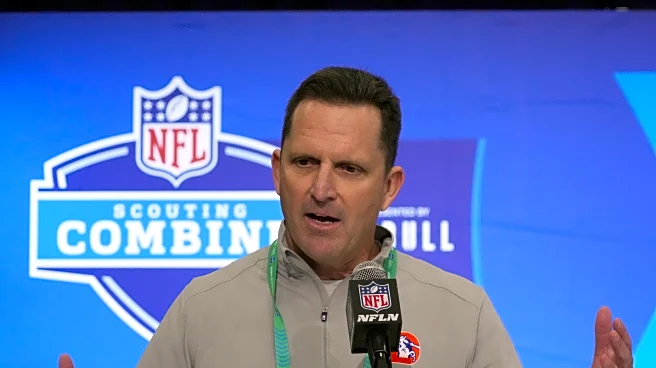What's Happening?
Nestlé, the world's largest food and beverage company, is undergoing significant leadership changes following a scandal involving its CEO, Laurent Freixe. The company has been facing investor dissatisfaction due to a declining share price and internal
restructuring challenges. Freixe was dismissed after an external investigation confirmed a conflict of interest related to his undisclosed romantic relationship with a subordinate. This scandal has highlighted corporate governance issues within Nestlé, leading to the resignation of its chair, Paul Bulcke. The company has appointed Philipp Navratil as the new CEO and Pablo Isla as the chair, aiming to bring fresh perspectives to the leadership team.
Why It's Important?
The leadership changes at Nestlé are crucial as they come at a time when the consumer goods sector is facing significant challenges, including reduced consumer spending post-COVID and a shift towards own-brand products. Nestlé's ability to navigate these challenges and restore investor confidence is vital for its future performance. The new leadership team is expected to address corporate governance concerns and potentially reevaluate the company's strategic direction, including the possibility of slimming down its portfolio to focus on higher-growth areas. This could impact Nestlé's operations in the U.S. and globally, influencing market dynamics in the consumer goods industry.
What's Next?
Nestlé's new leadership is expected to outline their strategic plans during the upcoming third-quarter earnings report. Investors and stakeholders will be keenly observing any indications of changes in the company's approach to its portfolio and governance practices. The company may consider divesting slower-growing brands or assets, such as its U.S. frozen food business, to streamline operations and improve profitability. Additionally, Nestlé's response to shareholder concerns and potential activist interest will be critical in shaping its future trajectory.
Beyond the Headlines
The scandal and subsequent leadership changes at Nestlé underscore the importance of robust corporate governance practices in maintaining investor trust and company stability. The situation also highlights the challenges faced by large conglomerates in adapting to changing consumer behaviors and market conditions. Nestlé's experience may serve as a cautionary tale for other multinational companies, emphasizing the need for transparency and accountability at all levels of management.
















